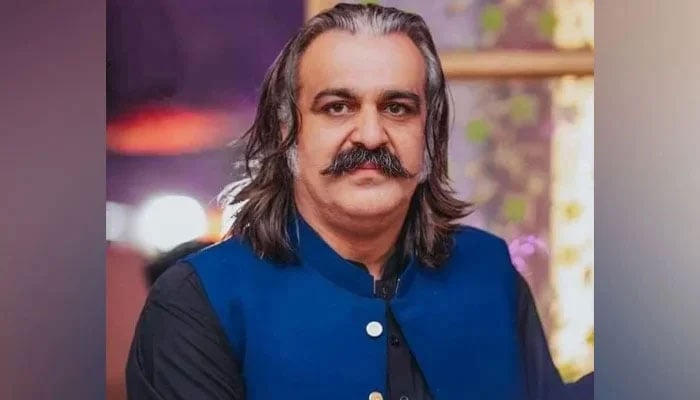Khyber-Pakhtunkhwa (K-P) Chief Minister Ali Amin Gandapur will address the provincial assembly today to discuss the key outcomes of the recent Pashtun Jirga. The gathering, which brought together tribal leaders and political representatives, focused on local concerns and demands. Gandapur intends to seek the assembly’s input on these issues and chart a path forward.
Speaking ahead of the session, Gandapur expressed gratitude for the peaceful conclusion of the jirga, emphasizing that his administration worked hard to provide essential facilities for the participants on short notice. “As a host, I did my best to ensure everyone had what they needed. Now, it’s time to turn these discussions into action,” he said.
During the jirga, leaders from various communities raised significant concerns, and Gandapur pledged to implement as many of the recommendations as possible within the province’s legal framework. For issues that fall beyond the provincial government’s jurisdiction, he assured the jirga that he would take these matters up with federal authorities.
The chief minister underscored his government’s commitment to addressing public concerns. “Our job is to meet the people’s expectations, and I’m dedicated to finding solutions in collaboration with both provincial and federal officials,” he added.
Gandapur also announced that the provincial assembly would hold a detailed discussion on the jirga’s demands, with input from both government and opposition members. This inclusive approach, he said, is crucial to ensuring that all voices are heard.
Earlier, the K-P administration had ensured that the necessary preparations were in place for the jirga, including temporary washrooms, lighting, medical camps, and 5,000 blankets for the participants. It was agreed that the discussions would focus strictly on local issues, with no slogans or actions against the state, constitution, or the Pakistan Army allowed.
Gandapur confirmed that the jirga’s demands would be conveyed to the federal government, acknowledging that only federal authorities or the Supreme Court have the power to lift the ban on the Pashtun Tahafuz Movement (PTM). The provincial government, he clarified, does not have that authority.
In his closing remarks, the chief minister reiterated that his government is committed to peace and open to dialogue with all parties involved to address the public’s concerns.
FAQ:
Q: What is the Pashtun Jirga, and why is it important?
A: The Pashtun Jirga is a traditional gathering of tribal leaders and political representatives from the Pashtun community. It serves as a platform to discuss local issues and address concerns that affect the community. This recent jirga focused on key issues in Khyber-Pakhtunkhwa and raised demands that the provincial government is now considering.
Q: What was K-P Chief Minister Ali Amin Gandapur’s role in the Pashtun Jirga?
A: As the host, Chief Minister Ali Amin Gandapur played a key role in organizing the jirga and ensuring it ran smoothly. He provided essential facilities and is now responsible for presenting the jirga’s outcomes and demands to the provincial assembly and federal government.
Q: What are the outcomes of the Pashtun Jirga?
A: The jirga concluded with several important recommendations and concerns raised by tribal leaders and political representatives. Chief Minister Gandapur has promised to address these issues within the provincial government’s legal framework and raise those beyond his authority with the federal government.
Q: What actions will be taken following the jirga?
A: Gandapur will discuss the jirga’s outcomes in the provincial assembly, seeking input from both government and opposition members. The assembly will work towards implementing solutions, and any demands beyond the province’s control will be escalated to the federal authorities.
Q: How did the K-P government support the Pashtun Jirga?
A: The K-P administration provided essential facilities, including water, washrooms, lighting, medical camps, and 5,000 blankets. Additionally, the government ensured that the jirga adhered to strict guidelines, focusing on local issues and avoiding actions or slogans against the state, constitution, or the Pakistan Army.
Q: Will the Pashtun Tahafuz Movement (PTM) be unbanned following the jirga?
A: The ban on PTM is a federal issue and can only be lifted by the federal government or the Supreme Court. The provincial government does not have the authority to make this decision, but Gandapur has assured the jirga participants that he will present their demands to the federal authorities.
Q: What’s next for the K-P provincial government after the jirga?
A: Chief Minister Gandapur will lead discussions in the provincial assembly and consult with all political stakeholders to ensure that the concerns raised during the jirga are addressed in an inclusive and lawful manner. Solutions to the issues will be sought both at the provincial and federal levels.
Q: How is the government ensuring peace and stability in the region?
A: Gandapur emphasized that his government is committed to establishing peace through dialogue and collaboration with all parties involved. He remains open to discussions with stakeholders to resolve local issues and maintain stability in the region.






